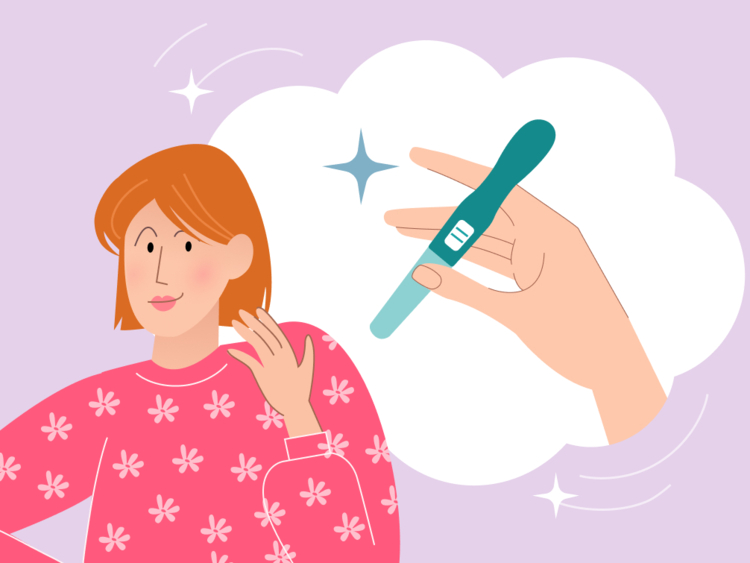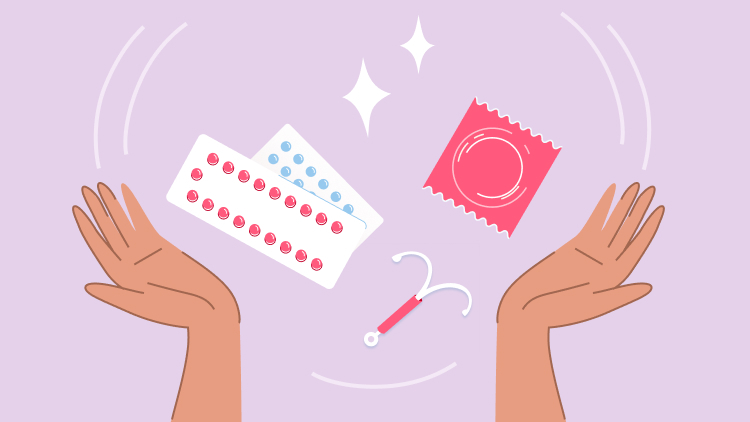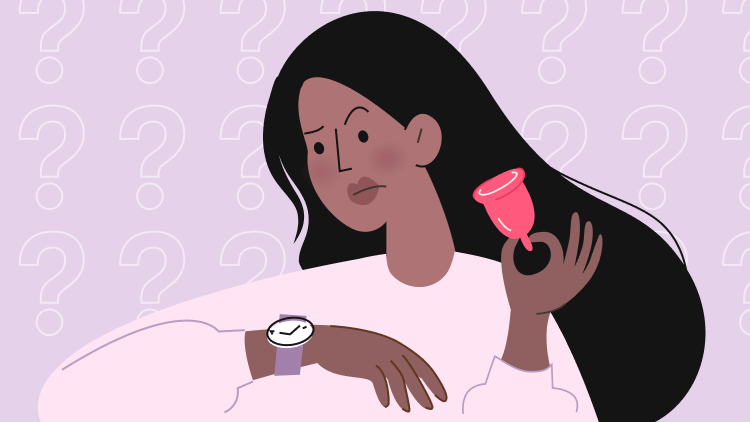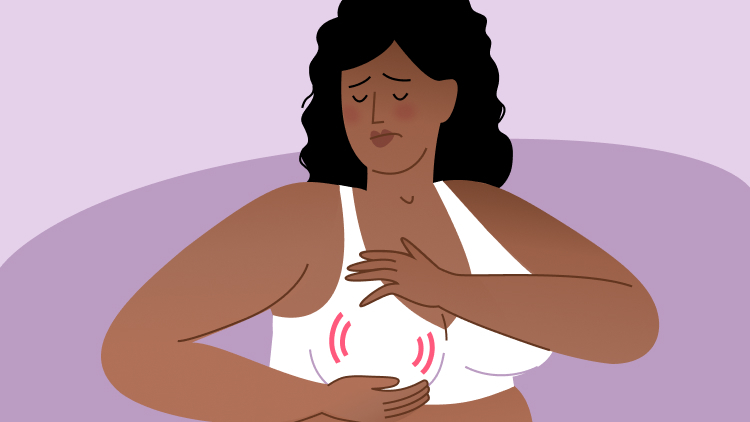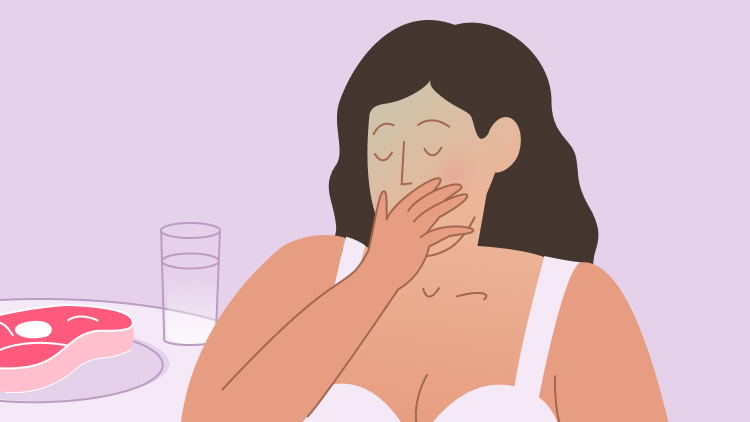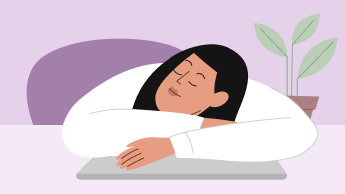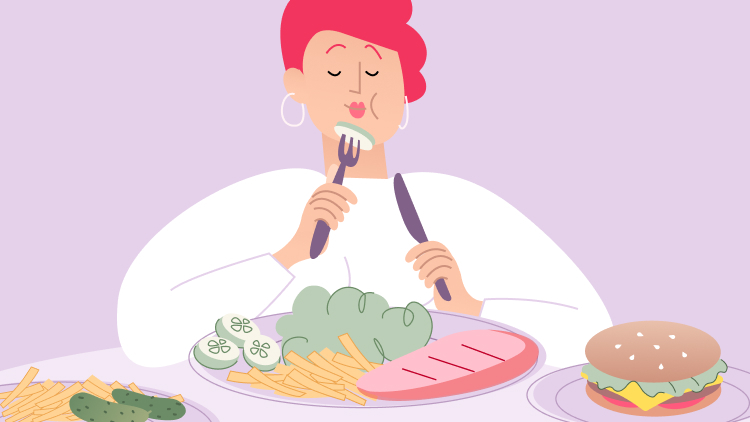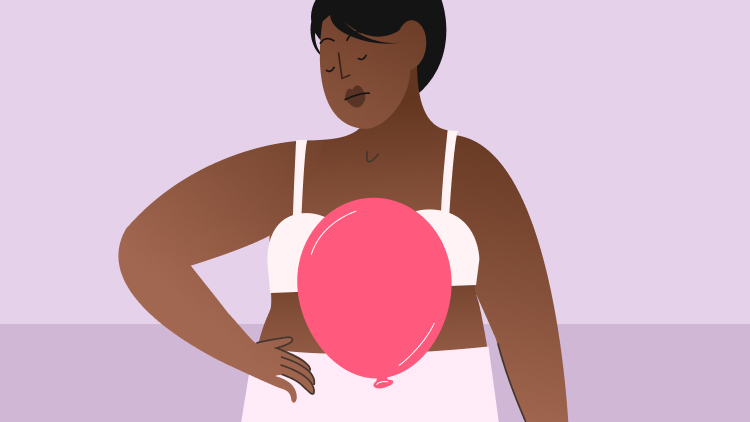What are the early signs of pregnancy?
Pregnancy can look different for different people. Some might notice early symptoms within days of conceiving, while others may not notice anything at all. Either one — or anything in between — is completely normal. But if you suspect you might be pregnant, it can help to know some of the first signs.
You can read up fully on the very early signs of pregnancy here, but some of the first symptoms can include:
The most common first sign of pregnancy is a period that doesn’t show up. That’s because usually, in a cycle where you don’t get pregnant, your hormone levels drop if the egg released in ovulation doesn’t get fertilized. This causes the lining of your uterus to shed, which is what you know to be your period. But if your egg does get fertilized and you become pregnant, your hormone levels don’t drop in the same way, meaning you won’t have another period until after your baby is born.
Using a period tracker like Flo can help you predict when your period should be due, so you’ll know whether you’ve missed a period or not, and you can take a pregnancy test if necessary.
One of the early signs of pregnancy in some people is spotting, also known as implantation bleeding. After your egg is fertilized, it travels through your uterine (fallopian) tube into your uterus, and around six to 10 days after ovulation, it implants into the lining. This process can sometimes disrupt some of the blood vessels in your thickened uterine lining, which can cause some very light bleeding. However, this doesn’t happen to everyone, so don’t assume you’re not pregnant just because you haven’t noticed any spotting before your period is due.
Have you noticed your breasts feeling a little sore lately? This is a well-known hormonal symptom that can hit just before your period, but it’s also a possible early sign of pregnancy. It can happen as your body adjusts to changing hormone levels in pregnancy, and you might notice that your breasts get bigger and your areolas (the skin around your nipples) get a little darker, too. If you are pregnant, the tenderness should settle down once your body gets used to the new hormone levels.
One of the most well-known signs of pregnancy is nausea and vomiting, which is often called morning sickness despite the fact it can happen at any time of day. Research suggests that around 70% to 85% of women experience nausea and vomiting during pregnancy, so although it can be unpleasant, it might help to know you’re not the only one going through it.
As with all pregnancy symptoms, it can look different for everyone. Some only ever get the nausea part, while others vomit too, and some people are triggered into queasiness at the thought of certain foods, called food aversions. Pregnancy sickness usually starts around week five or six of pregnancy, although it can hit some people slightly later. Usually, it eases off by around 14 weeks of pregnancy, but in some cases, it can go on longer.
One of the more subtle symptoms of pregnancy is producing more discharge than normal. You’ll probably be used to changing discharge (or cervical mucus) throughout your menstrual cycle. For example, around your fertile window, it becomes stretchy, like the texture of raw egg whites. During pregnancy, you produce more cervical mucus. The purpose of this pregnancy discharge is to help stop any infections from traveling up from the vagina into your uterus, where the baby is growing.
In the same way you might have cramps during your period, you might also have some cramping in the early stages of pregnancy. Some people have noticed this happening during implantation, which is why it’s known as implantation cramping, but it’s worth noting there isn’t much scientific evidence around it at the moment.
It’s thought that implantation cramping is usually mild and can feel similar to menstrual cramps. If you notice cramping mainly on one side of your body or in your lower back, and you also have some abnormal bleeding, it’s important to see your doctor because it could possibly be an ectopic pregnancy or another pregnancy complication.
These are just some of the possible signs of pregnancy, but other people also notice other signals like tiredness, mood swings, bloating, and needing to pee more often. It’s normal for pregnancy symptoms to differ between people, with some not noticing any obvious physical changes. If you want to keep an eye on what symptoms you’ve got and when, an ovulation-tracking app like Flo can help you with that. You can log symptoms as well as your periods, which may help you spot any irregularities with your cycle or how you’re feeling.
